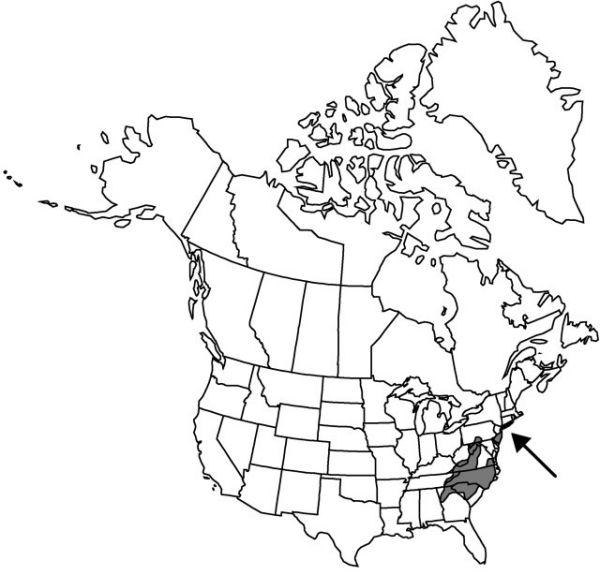Difference between revisions of "Uvularia puberula"
Fl. Bor.-Amer. 1: 199. 1803.
RevisionBot (talk | contribs) m (Bot: Adding category Revised Since Print) |
|||
| Line 17: | Line 17: | ||
}}{{Treatment/ID/Synonym | }}{{Treatment/ID/Synonym | ||
|name=Uvularia pudica | |name=Uvularia pudica | ||
| − | |authority= | + | |authority=Fernald |
}} | }} | ||
|hierarchy=Liliaceae;Uvularia;Uvularia puberula | |hierarchy=Liliaceae;Uvularia;Uvularia puberula | ||
Revision as of 15:52, 12 August 2019
Rhizomes short, 0.5–1 cm, bearing numerous, clustered, fleshy roots; stolons absent. Stems 1–several, 1-branched, angled and puberulent distally, especially at nodes, 1–4.5 dm, bearing 1 leaf below lowest branch. Leaf blades sessile, broadly oblong-elliptic, 4–8(–8.5) × 1.5–3.5(–4) cm, puberulent on abaxial veins, margins minutely papillose, apex acute to acuminate. Flowers 1–3 per stem; peduncles 0.5–2 cm, ebracteate; tepals greenish to pale yellow, 10–25 × 2–4 mm, smooth adaxially, apex rounded; stamens 6.5–17 mm; anthers 5–12 mm; connectives 0.6–0.8 mm; ovary sessile or subsessile, sharply triangular; style 8–14 mm; stigma lobes 4–6 mm. Capsules sharply 3-winged, broadly ellipsoid, 1.5–3.7 × 1–2 cm, not beaked. Seeds 3–3.5 mm; arils crested. 2n = 14.
Phenology: Flowering spring–early summer.
Habitat: Moist to dry, open woods
Elevation: 0–900 m
Distribution

Ga., Md., N.J., N.Y., N.C., Pa., S.C., Tenn., Va., W.Va.
Discussion
Selected References
None.